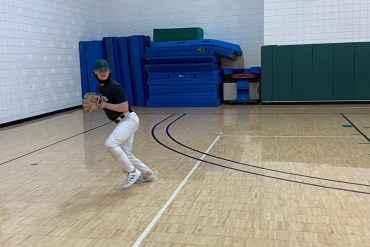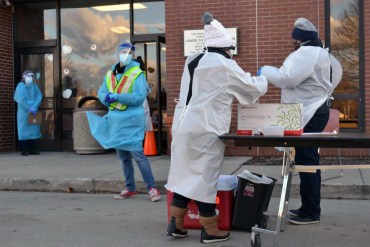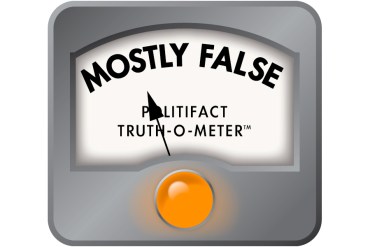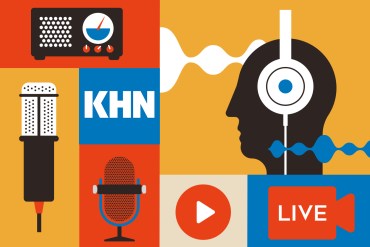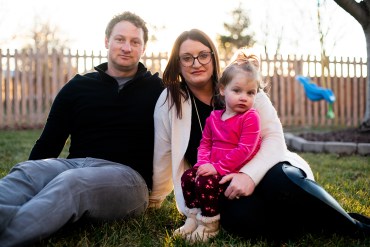Need Amid Plenty: Richest US Counties Are Overwhelmed by Surge in Child Hunger
Hunger among kids is skyrocketing, even in America’s wealthiest counties. But given the nation’s highly uneven charitable food system, affluent communities have been far less ready for the unprecedented crisis than places accustomed to dealing with poverty and hardship.
For Spring Season, Young Athletes Get Back in the Game Despite Covid Risk
With schools opening up classrooms, millions of young athletes are also getting out on fields and courts. But pandemic precautions and delays are spurring conflicts among parents, coaches and doctors.
University of Missouri Settles Lawsuits Over Knee Surgeries Involving Veterinarian
The University of Missouri settled a collection of 22 medical malpractice and false advertising lawsuits over knee surgeries for $16.2 million. One doctor involved in the cases is among Missouri’s highest-paid state employees; the other is a veterinarian.
Pfizer’s Newest Vaccine Plant Has Persistent Mold Issues, History of Recalls
After nearly a decade’s worth of federal inspections, reprimands and corrective action plans, has Pfizer fixed the facility that will be filling vials of its covid vaccine?
Firefighters — ‘Health Care Providers on a Truck’ — Signal Pandemic Burnout
Grappling with stagnant pay and a lack of personal protective equipment, firefighters are even more frustrated to find they are lower down the vaccine priority list than health care workers despite serving on the front lines of the medical system.
To Help Farmworkers Get Covid Tests and Vaccine, Build Trust and a Safety Net
Testing and vaccinating essential workers on commercial farms and in meatpacking plants requires more than a pop-up clinic miles away. Missing work to get a test, or to quarantine after a positive result, can be financially devastating.
States Aim to Chip Away at Abortion Rights With Supreme Court in Mind
Legislatures in conservative-leaning states across the country are pushing bills that would restrict abortion and, with a conservative Supreme Court in place, could erode abortion protections under Roe v. Wade.
Covid Vaccine Websites Violate Disability Laws, Create Inequity for the Blind
A KHN investigation found covid vaccine registration and information websites at the federal, state and local levels are flouting disability rights laws and limiting the ability of people who are blind or visually impaired to sign up for shots.
Covid Strikes Clergy as They Comfort Pandemic’s Sick and Dying
Spiritual leaders risk their own lives and health to tend to covid’s victims and their loved ones.
Organ Transplant Patient Dies After Receiving Covid-Infected Lungs
The first confirmed U.S. case of SARS-CoV-2 being transmitted through an organ transplant has prompted calls for updated transplant protocols and additional testing of samples from deep within donor lungs.
Why Biden Has a Chance to Cut Deals With Red State Holdouts on Medicaid
The pandemic and economic crisis give states new incentives to extend health coverage to their uninsured residents.
S.D. Governor Gives State High Marks in Handling the Pandemic. Are They Deserved?
While South Dakota is excelling in vaccine distribution and in keeping its economy intact, some health measures show the state is also dealing with one of the highest per capita covid death rates in the country.
Journalists Broach Topics From Vaccines and Super Bowl to True Love
KHN and California Healthline staff made the rounds on national and local media this week to discuss their stories. Here’s a collection of their appearances.
Lack of Covid Data on People With Intellectual Disabilities ‘Comes With a Body Count’
People with intellectual and developmental disabilities are more likely to have medical conditions that make covid especially dangerous. But a lack of federal tracking means no one knows how many people in disability group housing have fallen ill or died from the virus.
After Nearly 60 Years of Marriage, This Missouri Couple Stayed Together to the End
Arthur and Maggie Kelley of St. Louis died 30 days apart. Maggie died of complications of dementia in November. Arthur, who had moved into her nursing home to be with her, died a month later of covid. Their family held a double funeral.
Schools Walk the Tightrope Between Ideal Safety and the Reality of Covid
Across the country, politics have muddied the question of when and how to reopen schools. Even though teachers continue to fear for their safety, lawmakers and parents are demanding that schools take advantage of declining infection rates to open safely and quickly.
Journalists Explore Inefficiency and Inequities of Vaccine Rollout
KHN and California Healthline staff made the rounds on national and local media this week to discuss their stories. Here’s a collection of their appearances.
How a Bounty of Vaccines Flooded a Small Hospital and Its Nearby College
An ad hoc, chaotic distribution system is leading to a bizarre mix of vaccine haves and have-nots.
Baby Blues: First-Time Parents Blindsided by ‘the Birthday Rule’ and a $207,455 NICU Bill
Charlie Kjelshus needed neonatal intensive care for the first seven days of her life. The episode generated huge bills, and left her parents in a tangle of red tape that involved two insurers, two hospitals and two states.
‘We’re Not Controlling It in Our Schools’: Covid Safety Lapses Abound Across US
As President Biden calls for more support to help schools hold in-person classes, public health experts say schools can be relatively safe if they take well-known steps to prevent covid. But a KHN investigation shows many districts and states have ignored health advice or written their own questionable safety rules for schools.





